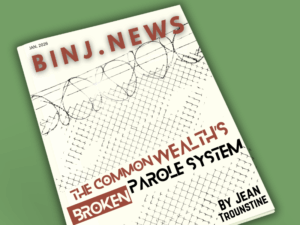Will the City’s pilot program be a step towards addressing the rat problem?
(Somerville Wire) –The City of Somerville announced that it would be launching a five-month pilot program to mitigate rodent activity on February 28. For years, residents and businesses have been plagued by this problem, while some said that they feel the City was not responsive to the issue under the Curtatone administration. As part of Mayor Katjana Ballantyne’s 100-Day Agenda, the City is now utilizing SMART Boxes to catch and eliminate rats at a few specific locations.
“Rodents are an issue on everyone’s minds: small businesses, large businesses, restaurants, clothing stores—it doesn’t matter. You’re going to hear from the business community that rodents are a problem, and then more so with residents,” said Colin Zeigler, the City’s Environmental Health Coordinator, who is managing the SMART program. “[The rats] often impact [residents’] day to day. They might not want to go to their trash barrel, or they notice them in their backyards, scurrying across the green space. Rodents are a problem, and they’re definitely an aspect of living in a densely populated, urban space. We see this in almost every urban situation, when you have a lot of amenities that rodents find attractive. You’re going to end up finding them. They’re an extremely adaptive species, and they love our infrastructure, our food, our access to water, and the general shelter that we can provide them.”
The City is working with Modern Pest Services to install 50 SMART Boxes in four neighborhoods—Davis Square, the Gilman Street area, the Lexington Street area, and the Macarthur Street area—through at least July. The boxes are non-toxic and also provide real time data for pest control. The way that they work is that a rodent enters the box, which detects movement and body heat, before killing the rodent with an electrical current. The rat is then deposited into a closed container, and the trap resets. The SMART Boxes will monitor and record activity, and they also alert Modern Pest when the activity is detected. Zeigler said that the locations were determined because they are areas of either significant activity, tightly packed neighborhoods, or places with open green space. If the pilot is successful, Zeigler hopes that it will be expanded upon.
Lynda Wills lives in the Macarthur Street area and said that a group has been informally formed, the Macarthur Street Neighbors. The rat problem, in some ways, has brought the community together, as the neighbors are frequently communicating about the problem. The problem, in some areas of the city, is caused by construction, said Wills, especially in the area where the Green Line Extension is being built. The pandemic also led to more sightings and more aggressive rats, she said. The Macarthur Street Neighbors are even thinking about trying a birth control product, which is not poisonous and would prevent the rats from repopulating.
“It has completely changed the way that we live, on this street,” said Wills. “It’s part of what has brought us all together, because it has been so disruptive.”
Frederic Yarm is a resident who has been living in Winter Hill, near Magoun Square, since 2002, and he currently has four rat colonies on his property. In addition to dealing with the rat problem at his home, he used to work as a bartender at Assembly Row, where he witnessed widespread rodent activity, as well. While the Smoke Shop BBQ where he worked did not have a problem, he would frequently see rats around the nearby coffee shop and beer garden. At the beer garden, bits of barbecue and French fries would be left on the ground, and at the coffee shop, trash that did not fit into a dumpster would frequently be left in bags on the street, which led to many rodent sightings. Since then, the situation at Assembly Row has gotten better, he said, and he wonders if this is in part because he was vocal about it.
Yarm has high hopes that the City’s pilot program will take out some rats, but he also acknowledges that the boxes are not being placed in his neighborhood and will not affect him. The cost of the initiative must be expensive, he said, and he wonders if the program is more symbolic than a widespread solution. Perhaps, as a possible response, “garbage police” could give tickets for improperly stored trash on the street, he said, although this would not be neighborly and would make residents unhappy. He is optimistic that the City is at least trying something right now, although he does not know if there is a real answer to the problem.
“The rats are there. The rats are not going away,” said Yarm. “Even if you put those fancy, electronic boxes that cost thousands of dollars per month, it’s just one of those things. If you don’t kill all the rats, within six to eight months you’re going to have the same number of rats. The rats will expand until they can’t have more food, and they’ll just plateau then. … It’s part of life now.”
This article is syndicated by the Somerville Wire municipal news service of the Somerville News Garden project of the Boston Institute for Nonprofit Journalism.
All Somerville Wire articles may be republished by community news outlets free of charge with permission and by larger commercial news outlets for a fee. Republication requests and all other inquiries should be directed to somervillewire@binjonline.org. Somerville Wire articles are also syndicated by BINJ’s MassWire state news service at masswire.news.
SUBSCRIBE TO THE SOMERVILLE WIRE EMAIL NEWSLETTER: https://eepurl.com/hpBYPv
Check out all our social media here: https://linktr.ee/SomervilleWire.
Shira Laucharoen is assistant director of the Boston Institute for Nonprofit Journalism and assistant editor and staff reporter of the Somerville Wire.







